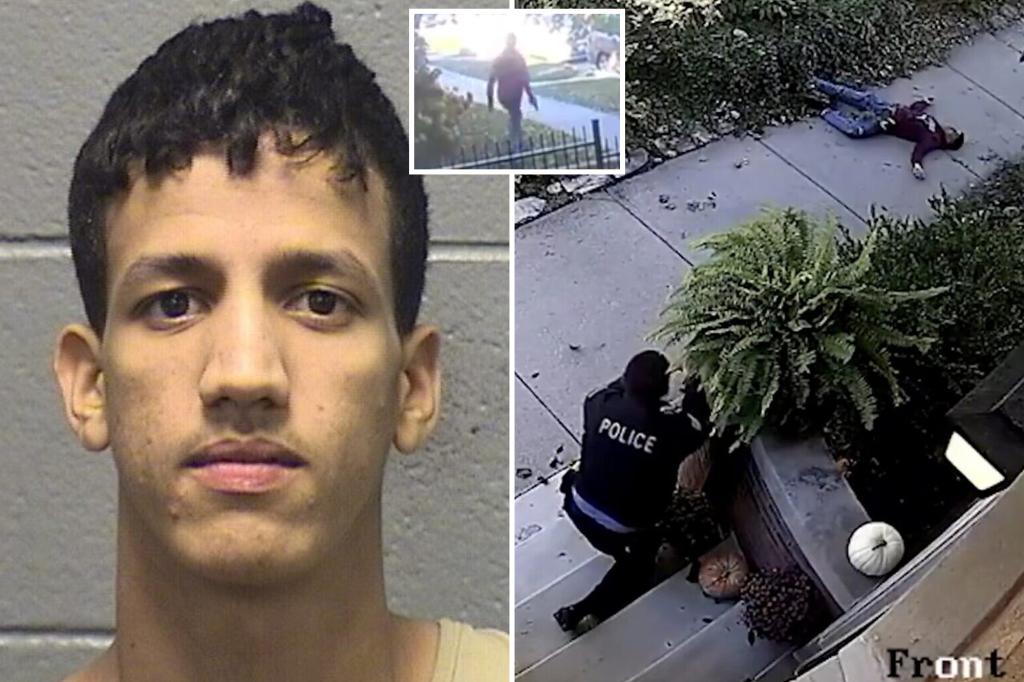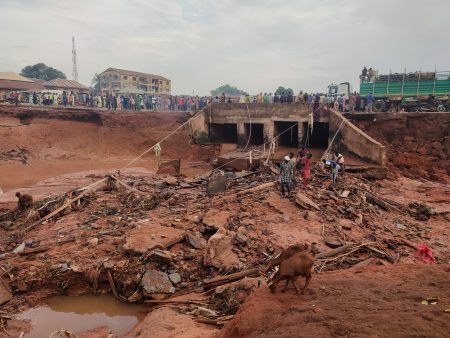In a tragic incident that has raised numerous concerns about safety and the implications surrounding illegal immigration, Sidi Mohamed Abdallahi, a 22-year-old migrant from Mauritania, was charged with a targeted shooting of a Jewish man in Chicago. The attack occurred in October, specifically in the West Ridge neighborhood, a locale known for its diverse community and significant Jewish population. Abdallahi’s actions not only shocked the local community but also sparked discussions about the broader issues of immigration and violence in urban areas.
Following the shooting, Abdallahi was taken into custody, where he faced serious charges stemming from his violent act. Authorities indicated that the incident was premeditated, aimed specifically at the victim, who was simply walking to synagogue. The nature of the attack raised immediate fears regarding safety and security in the neighborhood, especially among the Jewish community, which has been facing an increase in anti-Semitic incidents nationwide. The police response to the shooting included an exchange of gunfire, emphasizing the dangerous circumstances surrounding Abdallahi’s actions.
Days later, in a shocking development, Abdallahi was found dead in custody, having apparently committed suicide. Reports indicated that he was discovered unresponsive in Cermak Health Services, a medical facility affiliated with the Cook County Jail, where he was receiving care. Preliminary investigations suggested that Abdallahi died from an apparent suicide attempt by hanging. This news has left many questions unanswered, particularly regarding the mental health measures in place for detainees and the circumstances leading to such a tragic outcome.
Despite Abdallahi not being previously deemed at risk for self-harm, his unexpected suicide has prompted an investigation by the Illinois State Police Public Integrity Task Force. This inquiry is intended to ensure a thorough review of the events surrounding his death while in custody, particularly since he had committed a grave offense and was under significant stress. The sheriff’s office has emphasized that no foul play is suspected, attempting to clarify that Abdallahi’s death was not the result of external violence or neglect.
The implications of Abdallahi’s actions and subsequent death are multifaceted, stirring discussions around mental health resources for incarcerated individuals as well as the challenges faced by law enforcement in handling cases involving illegal immigrants. The incident has further ignited conversations regarding community safety in areas with rising incidences of violence and hate crimes, and how these factors contribute to the overall social climate. Such discussions become crucial in the context of enhancing safety measures and providing support systems for vulnerable populations.
Overall, the tragic case of Sidi Mohamed Abdallahi reflects broader societal issues including immigration, violence, and mental health within the justice system. As investigations continue, the hope remains that through understanding these interconnected issues, communities can work towards fostering a more secure and inclusive environment for all residents, while also addressing the needs of those grappling with mental health challenges in the penal system.










